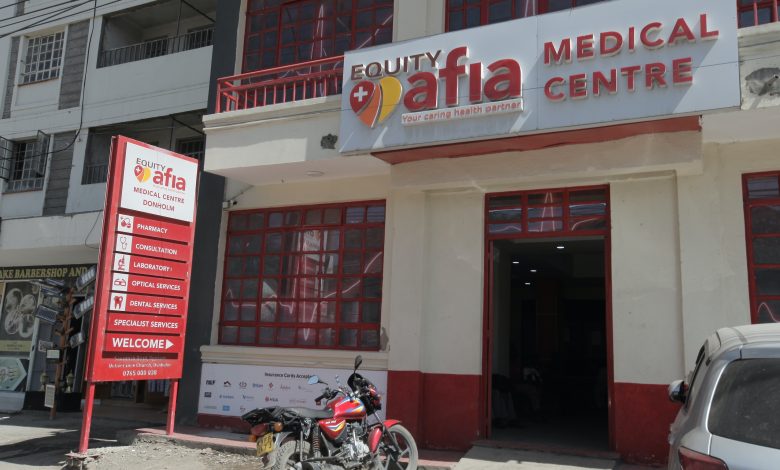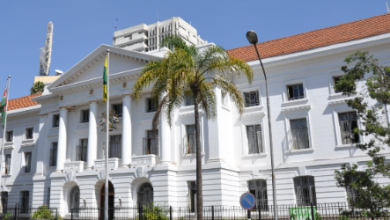European Investment Bank’s Partnership with Kenyan Banks Boosts Private Sector

The partnership between the European Investment Bank (EIB)- the European Union’s investment and lending arm – and local banks in Kenya has been lauded by beneficiaries in the private sector as a ” helping hand especially during the post-COVID era”.
The Bank has disbursed millions of Euros in various African countries to support the long term growth and sustainability of MSMEs. With the current macroeconomic uncertainty facing many African economies, government borrowing in local markets has crowded out the private sector, placing entrepreneurs and MSMEs at a disadvantage in credit markets.
MSMEs in Kenya account for nearly 40% of the GDP, according to the Kenya National Bureau of Statistics (KNBS). The sector also employs about 15 million people, with their daily incomes circulating within that economic bloc. However, many MSMEs are still informal and are perceived as high-risk investments. Many banks are unwilling to loan to them, capping their capacity to upscale.
“The EIB is a bank that cannot go into small loans but through the intermediary of local banks, it is possible to go into that market segment,” said the EU Ambassador to Kenya, Henriette Geiger.
Intermediated lending means a local bank, or other financial institution, takes out a loan from the EIB and then lends this money to small businesses in its area of operation. The credit lines are targeted at the EU’s priority areas of intervention in a particular country, in order to maximise their impact. In certain operations, the EIB blends the credit lines with EU grants in order to develop affordable financing solutions and technical assistance for the final beneficiaries and partner banks.
“Access to finance is crucial for MSMEs to support their growth and in difficult times, even to sustain their businesses,” said Edward Claessen, Head of the EIB Regional Hub for Eastern Africa.
The pandemic was disastrous for big businesses globally with many going into the red zone for lengthy periods. For many small businesses, restrictions on movement during the lockdowns in addition to the other disruptions of the pandemic were fatal. A 2021 report by the Central Bank of Kenya (CBK) showed that the pandemic period saw the closure of 20% of small businesses in the country. When all restrictions were eased by 2022, recovery was difficult because financial institutions had been affected too.
The EIB sought to support Kenya’s small businesses stay afloat and keep their doors open through this intermediated lending framework. This included working with banks that are popular with MSMEs such as Co-operative Bank and Equity Bank. Since these banks know their customers well, and have worked with them for many years, they were better placed to organize loan allocation and careful investment.
“During COVID and even after people had time to do some planting of flowers and the rest which drove up demand for our products. We had to look for a financial partner that would help us meet the demands of the market,” said Ronald Omwenga, CEO of The Pot Shop, one of the SMEs that received EIB financing support through Co-operative Bank.
Businesses, especially MSMEs usually face high collateral requirements, which limits access to, and the quantity of, credit. They typically face interest rates that are simply unaffordable given their business size and prospects. The challenge of credit constraints is even worse for start-ups or relatively new enterprises and those considered to be growing slowly. Many financial institutions consider these enterprises to be high risk, and consequently either exclude them or offer credit only at relatively higher prices.
Dr. Anthony Kinyanjui, the Medical Officer in-charge of Equity Afia, Donholm, was one of the entrepreneurs who benefited from affordable capital injection from the European Investment Bank through its partnership with Equity Bank. He was able to scale up his clinic network across Nairobi’s Eastlands.
“Some of the obstacles that we have been encountering is access to capital. Equity Bank has been able to educate us on different options that are there for financing our business. When the opportunity to benefit from the EIB facility came, it came in handy. So we have been able to expand to every estate in Eastlands,” Dr. Kinyanjui said.
Through the funds from European Investment Bank through a local lender, Kinyanjui’s clinics have been instrumental in driving down medical costs for locals where the centres exist. The government’s Affordable Health Care program cannot work without the input of the private sector where the attitude of competition will limit price surges, and the profit motive would ensure quality healthcare provision. The private sector will also reduce unemployment rates as well as strengthen the national economy.
“We have created a lot of jobs, from one clinic having only a few staff, 4 to 5, to currently having over 150 staff. And of course, indirectly many other jobs in the community,” said Anthony Kinyanjui.
“We have grown and we have been able to help people who want employment to work with us,” said The Pot Shop CEO, Ronald Omwenga.
The EIB uses a similar allocation model employed with private sector banks in different countries. The local intermediary banks are incentivized to act diligently when dealing with their clients.
“The loans that are provided have enabled local banks to pass on favorable terms including longer tenures and affordable interest rates to the MSMEs here. It is crucial for them to sustain their business, to grow their business, and to create sustainable jobs,” said EIB’s Edward Claessen.



